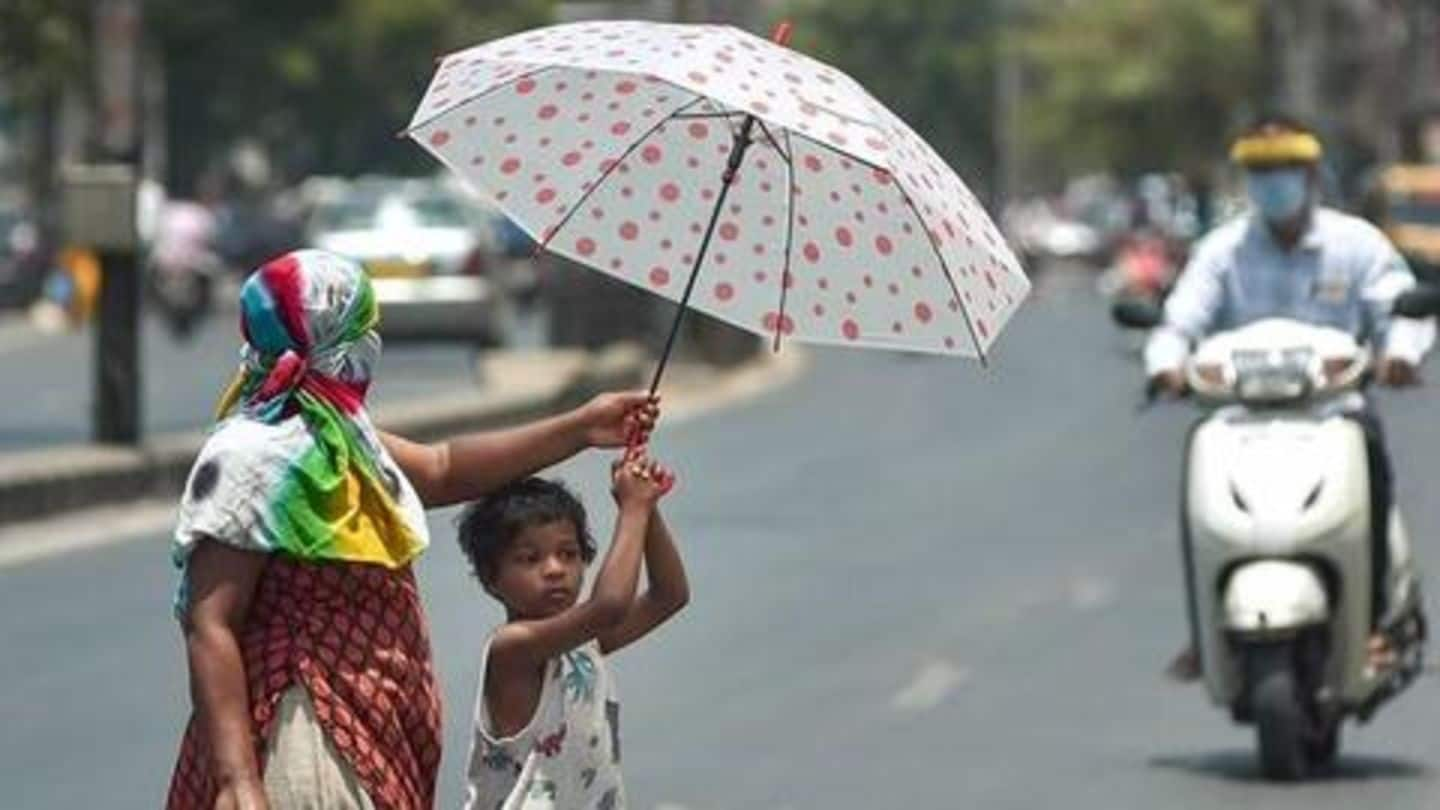
North, central India heatwave to continue till tomorrow, says IMD
What's the story
Several parts of northern and central India have been reeling under an intense heatwave and according to the India Meteorological Department, there will likely be no respite for the next 24 hours.
On Tuesday, the national capital of Delhi recorded a maximum temperature of 47.6°C. The highest recorded temperature for the day was 50°C in Churu, Rajasthan.
Here are more details.
Details
'Present heatwave conditions very likely to continue next 24 hours'
The IMD said, "Due to the prevailing dry north-westerly winds over plains of northwest India, central India, and the adjoining interior parts of eastern India, the present heatwave conditions are very likely to continue during next 24 hours."
It added, "Under favorable wind conditions over parts of central India, heatwave conditions also likely to reduce from these areas from 29th May."
Locations
West Rajasthan's Vidarbha to witness severe heatwave
Isolated pockets in west Rajasthan's Vidarbha are very likely to witness severe heatwave conditions, the IMD said.
Further, heatwave conditions are likely to prevail in some pockets over Haryana, Chandigarh, Delhi, west Uttar Pradesh, Madhya Pradesh, and east Rajasthan, and in isolated pockets over Punjab, Bihar, Jharkhand, Odisha, Saurashtra and Kutch, central Maharashtra and Marathwada, Telangana and north interior Karnataka.
Information
Western disturbances to bring relief from Thursday
A western disturbance is likely to offer some relief on May 29-30, the IMD said. India is also likely to witness dust storms and thunderstorms during this period. Western disturbance is a cyclonic storm that originates in the Mediterranean Sea, traversing central Asia.
Southwest monsoon
Southwest monsoon further advances in parts of Bay of Bengal
The IMD's national weather forecasting center said the southwest monsoon has advanced into parts of the South Bay of Bengal and other regions.
It said, "Conditions are becoming favorable for further advancement of southwest monsoon into parts of Maldives-Comorin area and adjoining southeast Arabian Sea, remaining parts of Andaman Sea and parts of south and central Bay of Bengal during next 48 hours."